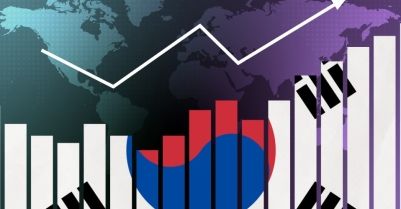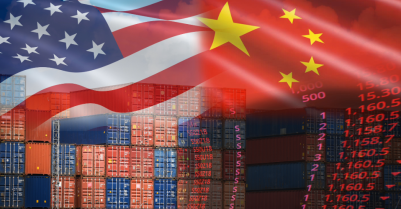-
View article
 #Economy
#EconomySouth Korea: a year after the political crisis, markets are buying the promise of stability
2025/12/17
- #Eco trends
- 2020/07/07
- 0
-
17
What can bankers learn from Nikolai Gogol?

The long sweep of history doesn’t often seem to be of much use in helping a credit committee reach decisions! While this is true in steady-state conditions, i.e. at times when things are economically and politically “normal”, it doesn’t hold true when the weather turns rough. On the contrary, when the forecasting universe becomes volatile or anxiety-inducing, history can help us identify some points of stability. This is particularly true in the world of geopolitics. Furthermore, when trying to work out where these foundational points are, it’s worth using the investigative method recommended by Max Weber to measure the true scope of a historical factor: what would have happened if it hadn’t existed? Or, to put it more succinctly, “What if?” Well, if the COVID crisis hadn’t happened, the rivalry between the United States and China would still be just as potent and formative for politics and the global economy.
From this flow three ideas that are now more or less consensual, and which thus deserve to be looked at more closely. Shifts in the consensus are always important for business and economics alike: they influence decision-makers, and therefore scenarios themselves. They’re also important because a consensus proceeds as much from a clearer view of reality as it does from a less clear desire to write about that reality. And here it’s worth considering a methodological precaution from the world of economic investigation: János Kornai[1] has recommended that one should go back over one’s forecasting errors every ten years to identify one’s own judgement biases.
Beware the American “chinovniks”
The first idea is that the United States and China will continue to clash once the US elections are over, even if the faces and forms have changed and even if there seems to be a break in hostilities – which the market will quickly latch onto as a signal of peace. Such a state of permanent conflict, whether it is an underlying state of affairs or not, is likely for three reasons.
First, this tension arises from the inevitability of the “big story” – the story of US domination in the face of a resurgent China. When challenged, a hegemonic nation-state never relinquishes its position without a fight.
Second, populations have become even more hostile thanks to COVID-19, and the issue has thus moved into the realm of domestic politics, where it will remain for a long time to come: generational effects are a powerful force in politics. For some authors, such as George Modelski, such effects are the source of long cycles of political opinion – the geopolitical equivalent of Kondratieff cycles in economics.
Third, and this is the most objective argument, the clash is no longer driven solely by governments’ political leadership: it is baked into laws, regulations and administrative structures. Sociologists have long demonstrated that this creates both inertia that restricts forward movement and a ripple effect. Incidentally, Russian writer Nikolai Gogol was a specialist in this subject, having long ago identified “chinovniks”[2] (officials) and their ability to influence a society… The US administration has bought into both the legitimacy (questionable as it is) of the extraterritoriality of US law and the logic of political rivalry.
Lessons from history about globalisation
The second idea shaping the consensus is that this rivalry can play out in every sector, from economics to the military, not forgetting culture, education and diplomacy; that it will be more intense in so-called strategic areas like technology, control over commodities, healthcare and so on; and that it will involve a kind of decoupling of value chains. Well, okay, but when? And how far will this go? That’s where the consensus breaks down. The most widespread view among economists is that there will be a slow process of partial deglobalisation out of which the two powers’ respective areas of influence will gradually become clearer. This projected future effectively maps out a polarised world in which the new normal could be anything from another Cold War to cooperation in some areas. And, as it happens, such a world does not appear to be incompatible with current financial structures.
However, some political analysts are more cautious – and are all too quickly labelled pessimists as soon as they step outside the consensus. Indeed, the history of declining hegemonic nation-states tends to teach us that such nation-states seek to destroy their rival powers at any cost, including by military force. Taking all this into consideration, it’s hard to say which will prevail, historical experience or the particularities of today – namely, the far-reaching economic interdependence that has arisen from globalisation. Or, indeed, the nuclearisation of the world, which is giving rise to new military rules of engagement.
Might the power of the dollar indicate a phase of geopolitical decline?
The third idea is the most important of all. COVID-19 and the social crisis currently rocking the United States have intensified a paradoxical situation: on the one hand, there is growing certainty that US hegemonic power is declining and the economic and political balance is shifting ever more starkly towards Asia; on the other, the undeniable hegemony of the dollar – even though many countries are gradually holding less and less of it as a reserve currency – serves to lock in the existing balance of power. What does history teach us? What role has money played at previous times of hegemonic tension?[3]
Many authors – for example Giovanni Arrighi, Immanuel Wallerstein, Samir Amin and, of course, Fernand Braudel – have attempted to compare capitalism’s successive phases of expansion in trade, production and finance with geopolitical phases of world history. From their studies emerges a striking observation: “those periods when finance takes on particular importance tend to point to a new weakness in the former hegemonic power and herald its impending replacement […]. They tend to herald a relatively imminent shift in the global system of accumulation.”[4]
This fact appears to be related to a very simple mechanism whereby economics and geopolitics each act on the other. In its initial dominant phase, the hegemonic power generates current account surpluses; however, as it finds it is unable to keep producing the most attractive goods, these surpluses turn into deficits (production being one of the prerequisites for hegemony). From there, the hegemonic power, which still holds onto its financial power, attracts the most mobile capital flows and recycles them into income-generating activities – often in the form of direct investments in its rival power! And so we come full circle: “financial expansions that reflated the power of the declining hegemonic state would have come to an end anyway under the weight of their own contradictions.”[5] No comment. This happened to the Dutch from 1750 onwards and to the British starting in 1919… and it looks very much like the situation in America since 1977.
Many observers today have noted the geopolitical importance of the financial sphere and are calling for alternative monetary systems. These observers are found, unsurprisingly, in Russia and China, where systems are being developed to escape the clutches of SWIFT (SPFS for Russia, which already handles 18% of Russian international transfers; CIPS for China). They are also to be found in emerging countries, notably Turkey and India, where efforts are being made to develop bilateral payments in other currencies – just as Shanghai Cooperation Organisation finance ministers recommended last March. But they can also be found right at the heart of the western financial system. For example, at the famous Jackson Hole conference last August, former Bank of England Governor Mark Carney called for the creation of a digital currency based on a basket of currencies. His choice of name for this currency was most interesting: he called it a “synthetic hegemonic currency” (SHC). The United States had better be wary of its allies as well as its rivals…
Tania Sollogoub
tania.sollogoub@credit-agricole-sa.fr
[1] A Hungarian economist who came up with the theory of soft budget constraints.
[2] “Never had anyone given such a comprehensive lesson in pathological anatomy on the Russian official.” – Aleksandr Herzen (1851), Du développement des idées révolutionnaires en Russie
[3] Hegemonic powers since the 15th century: Portugal, the Netherlands, Great Britain and the United States.
[4] Philippe Norel (2009), L’histoire économique globale, Seuil.
[5] Giovanni Arrighi and Beverly J. Silver (2001), “Capitalism and world (dis)order”, Review of international studies, Volume 27.








